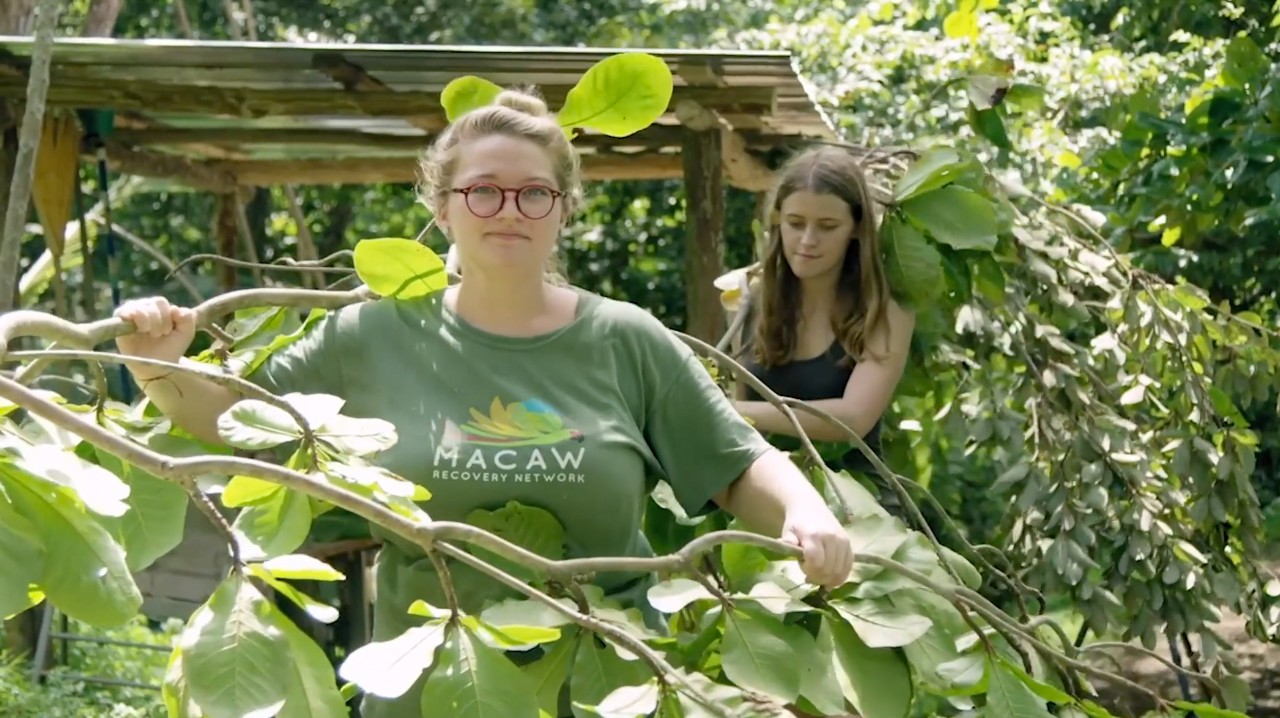
UC student's parrot conservation work featured in new docuseries
Biology student discusses her conservation work in Costa Rica
A new wildlife documentary series highlights the conservation work of a University of Cincinnati student in Costa Rica.
“Costa Rica: Animals Return” tells conservation stories in this hub of biodiversity in Central America, from the bizarre-looking tapir to pigs called white-lipped peccaries.
UC student Darby Moore worked with the nonprofit Macaw Recovery Network in Guanacaste in northwest Costa Rica where she cared for the nearly extinct great green macaw.
“There are only about 500 of them left in the wild. We think it’s important to breed them in captivity so we can have the best chick survivability possible,” Moore says in the film. “Then we release them so they can reproduce in the wild.”

UC doctoral student Darby Moore is featured in a new wildlife documentary series on Costa Rica.
Moore will be rejoining the lab of UC Assistant Professor Elizabeth Hobson this year where she will continue her research. Besides macaws, Moore has studied the behavior of monk parakeets as a field technician in Hobson’s lab.
“Some parrot species are common in the pet trade around the world despite being endangered in the wild,” Moore said. “Breeding ex-pet parrots in captivity and releasing their young into the wild is becoming more popular as a conservation tool.”
The lessons they learn about raising and reintroducing captive great green macaws could help bring other endangered birds back from the brink around the world, Moore said.
“This research is interesting from the perspective of animal behavior, but it also has important implications for the field of reintroduction science,” she said. “Many parrot species in Central and South America face extinction due to poaching and habitat destruction.”
Moore said she hopes her work will help other endangered birds such as scarlet macaws and yellow-naped Amazon parrots.
“My proposed research has the potential to inform management strategies for parrot reintroduction programs,” she said.
Watch the documentary on Vimeo.
Featured image at top: UC doctoral student Darby Moore is featured in a new wildlife conservation documentary series about Costa Rica.
More UC biology in the news

UC Assistant Professor Elizabeth Hobson works with bobwhite quail in her lab. Photo/Andrew Higley/UC Marketing + Brand
Related Stories
Study: There might be 3 different types of ADHD
March 4, 2026
The University of Cincinnati's Melissa DelBello was featured in a National Geographic article discussing recent research she coauthored that used brain imaging to identify three distinct subtypes of of ADHD, each with its own chemical interactions in the brain.
German TV highlights UC expert's ancient Maya discoveries
March 2, 2026
The German television show 'Unsolved Case' talks to a University of Cincinnati expert about ballcourts used by the ancient Maya for a program examining how people used spheres as both tools and toys.
UC studies supplement, therapy alternatives to treat depression
March 2, 2026
Media outlets including Cleveland.com and Cleveland's WKYC News highlighted a new University of Cincinnati clinical trial funded by an approximately $3.5 million grant from the National Institutes of Health’s National Center for Complementary and Integrative Health to test two new nonpharmacological treatments for teens and young adults with depression.
